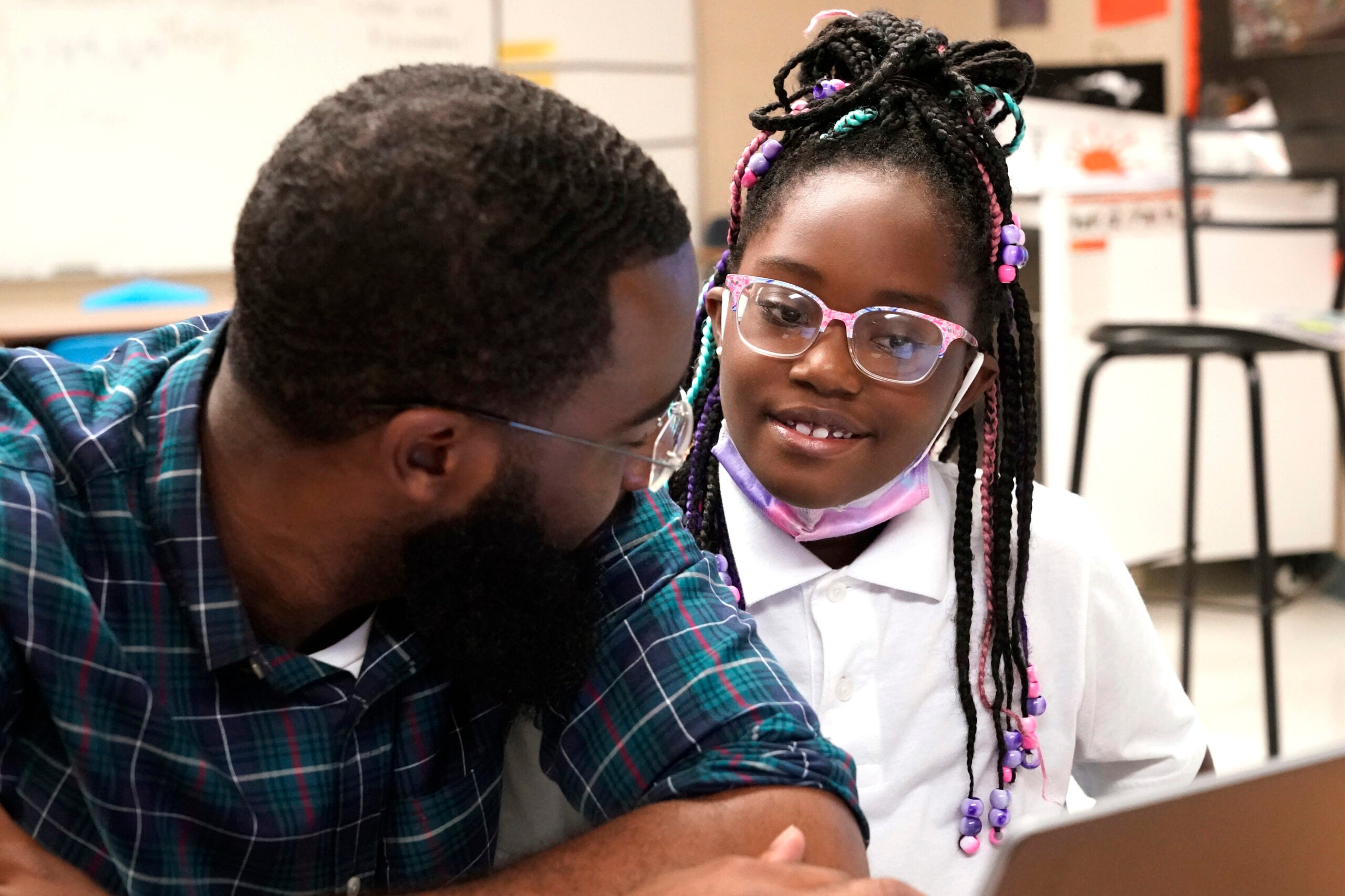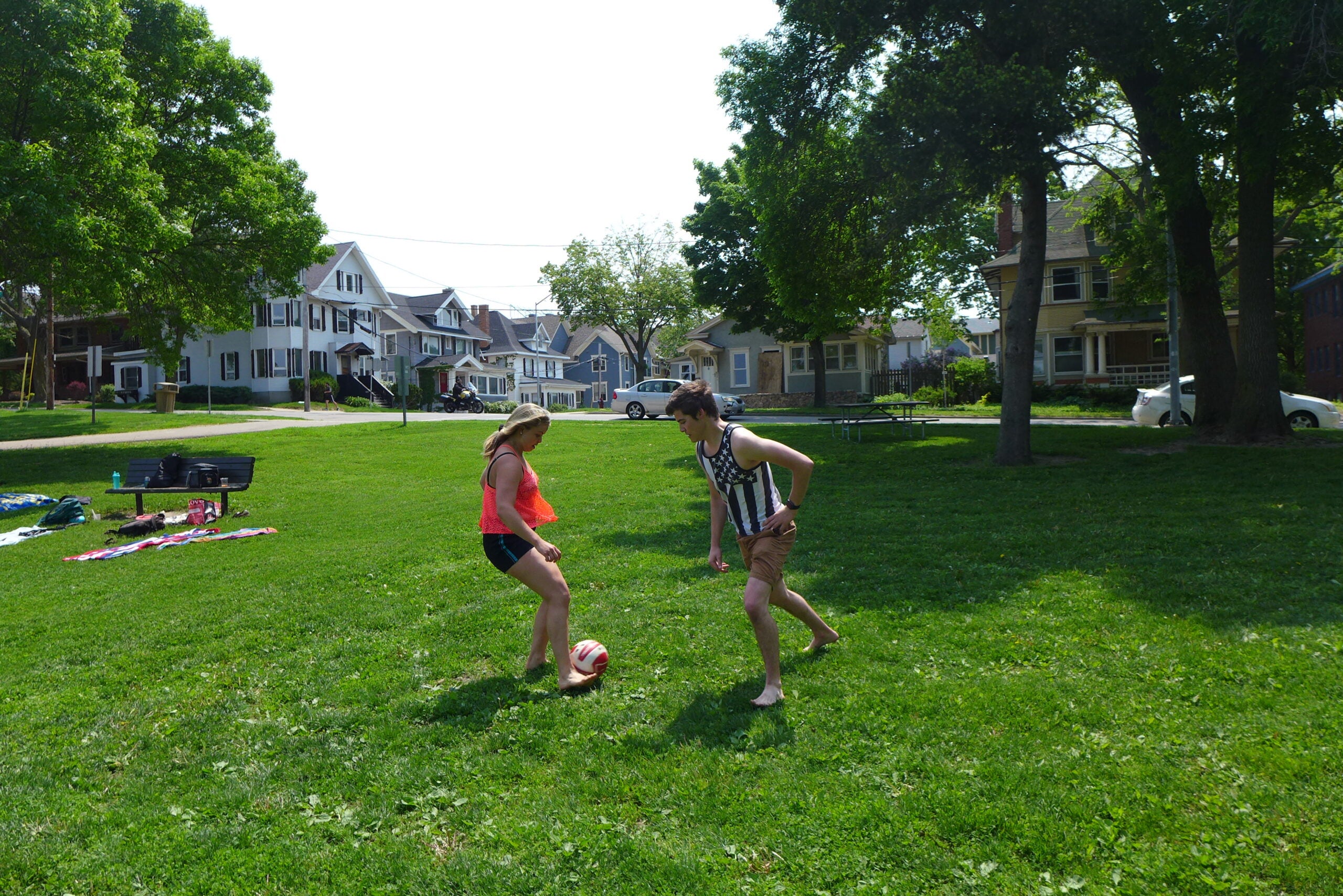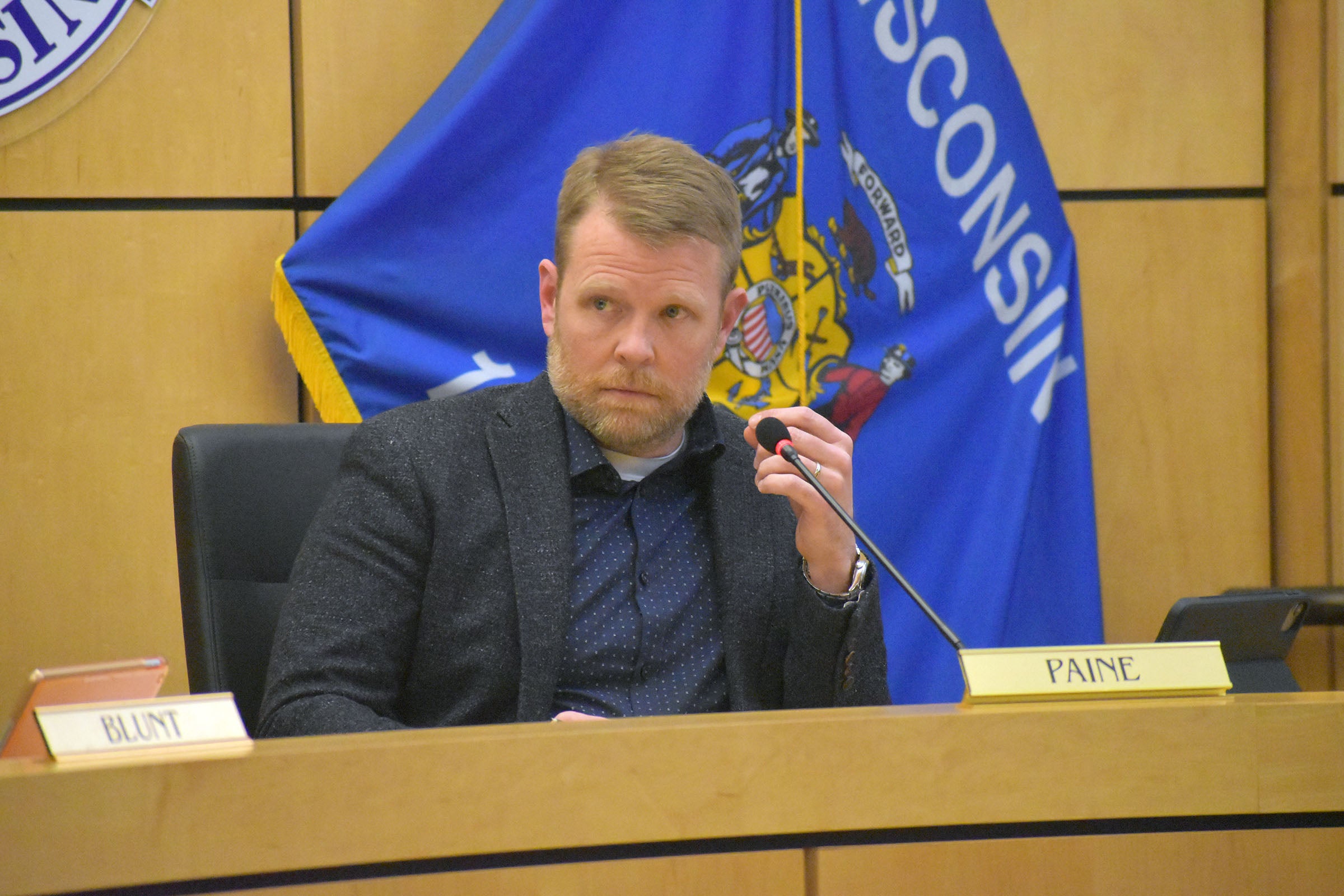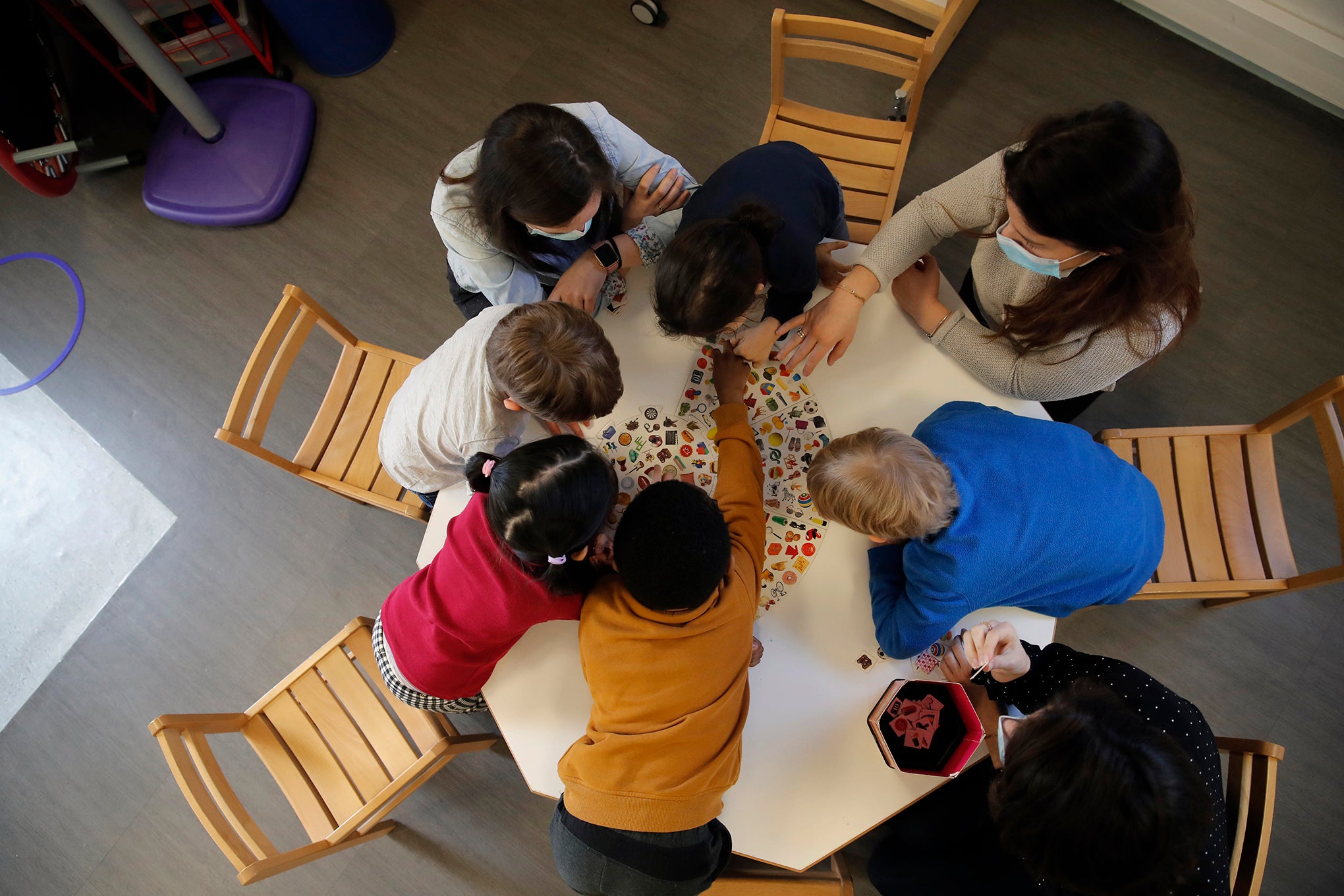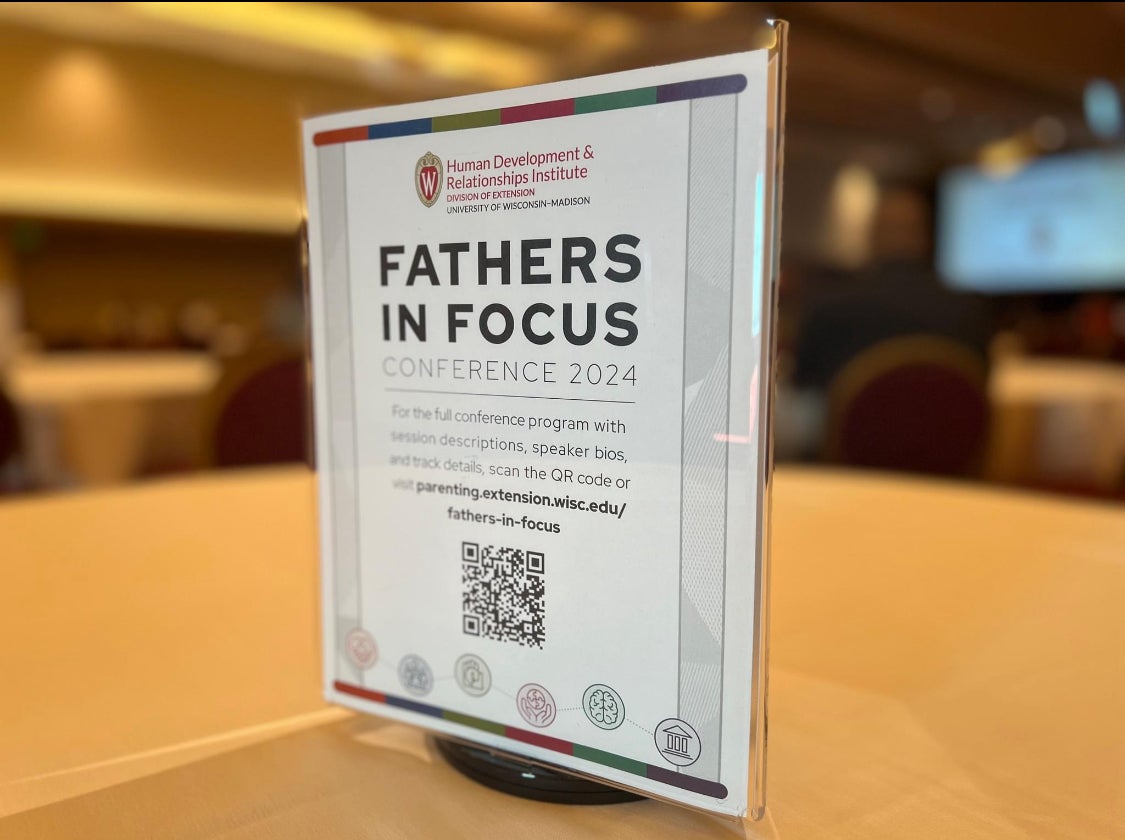On Father’s Day, dads across Wisconsin are spending quality time with their kids, passing on life lessons and wisdom — something they want to do more year-round, too.
Fathers want to spend more valuable time with their children but lack group settings that offer peer support, according to a report from the University of Wisconsin-Madison Division of Extension that surveyed 35 Wisconsin fathers. The report dove into what fathers really want and the barriers they face.
“Fathers want to be fathers,” said Margaret Kerr, lead author of the Fatherhood Needs Assessment and an assistant professor at UW-Madison. “They really wanted to be involved in their kids’ lives. They expressed the desire to be involved in the day-to-day and to be role models for their kids.”
Stay informed on the latest news
Sign up for WPR’s email newsletter.
Kerr said recently on Wisconsin Public Radio’s “The Morning Show” that it’s a common misconception to say fathers want to prioritize making money over spending time with their kids. That image wrongfully exists for fathers without primary custody of their children, in particular.
Successful fatherhood means active involvement, nurturing relationships and role modeling, according to the report, which broke down what fathers need to reach those goals into four themes:
- Basic life needs and resources.
- Parenting support.
- Systemic barriers to fatherhood.
- Challenges and consequences related to the legal system.
“Their ability to get their basic needs met and to successfully navigate the legal system (both criminal and family court) impede their ability to be fully engaged in their fatherhood role,” the report states. “This is further exacerbated by society’s attitudes and gender norms that negatively impact fathers.”
Kerr, who teaches in UW-Madison’s Department of Human Development and Family Studies, said it was great to see fathers speak openly about the love they express for their kids. Stigma and gender norms can get in the way of that, she added.
Kerr said her favorite part of the report was about social connections for fathers. It’s easier for mothers to find local support groups where they may discuss and learn about motherhood. Dads in the report were unsure how to find peer support around fatherhood. Parenting events they found were often largely made up of women.
“They don’t feel welcome in those spaces,” Kerr said.
Jessica Pearson is the director of the national Fatherhood Research and Practice Network. On the policy side, she said Wisconsin could support fathers better by raising its minimum wage from $7.25 per hour and strengthening family leave. Those moves would benefit mothers and children, too, she said.
Wisconsin also charges interest on unpaid child support, which increases debt. Pearson said on “The Morning Show” that more debt is detrimental to both the child and father’s wellbeing, and it strains family relationships.
After speaking with Wisconsin fathers, Kerr said they think the child support system is quite complicated. Rules vary from county to county, and they are not very transparent. It can be hard, too, for fathers to know how and when to renegotiate terms when circumstances change.
For example, she said some Wisconsin counties do not automatically pause child support payments if someone goes to jail. But it’s possible to request a pause — something that many people don’t know.
Peer group systems could help fathers navigate such challenges, Kerr said. The report called creating such groups, “one of the most prevalent findings” from both fathers and community partners who spoke with researchers.
The report offered other solutions to address some of the problems fathers are facing, and those include:
- Designing programming and resources for fathers’ specific needs.
- Adapting existing programming and resources to be more inclusive and welcoming to fathers.
- Helping fathers advocate for their rights.
- Disseminating research and information about the importance of fatherhood for family wellbeing.
The Division of Extension, knowing it wasn’t serving fathers at the same level it was serving mothers, has started implementing some steps to improve, Kerr said. There’s a virtual program called Focus on Fathers, where fathers can discuss supporting the social and emotional skills of their kids.
“We’re working on extending that to other types of things, as well,” she said.
Wisconsin Public Radio, © Copyright 2025, Board of Regents of the University of Wisconsin System and Wisconsin Educational Communications Board.

